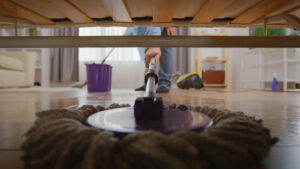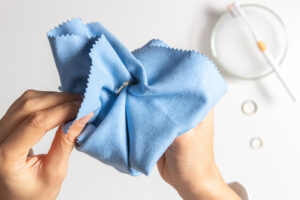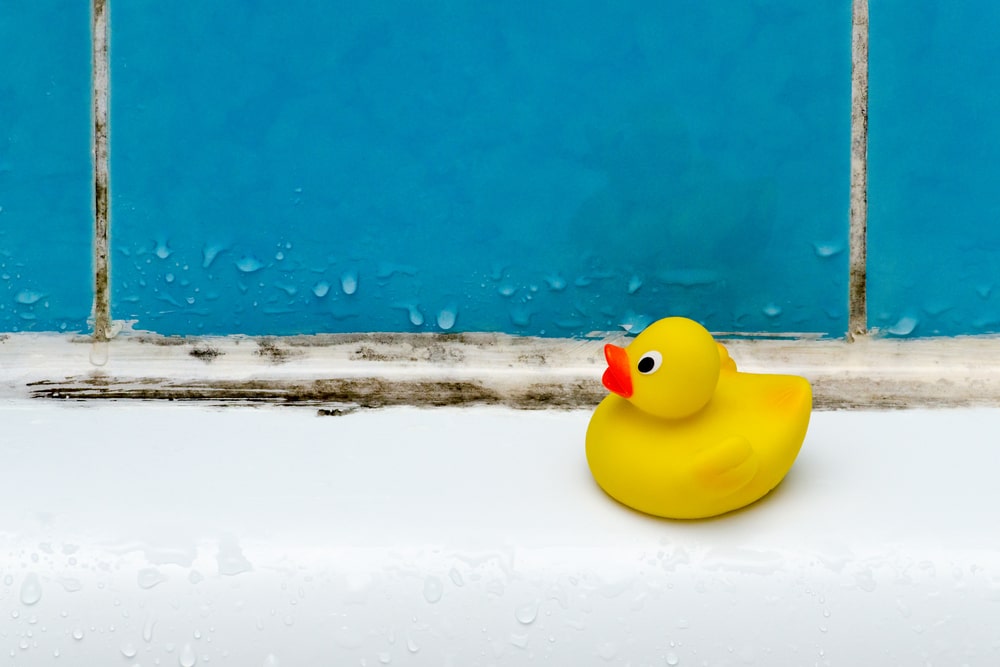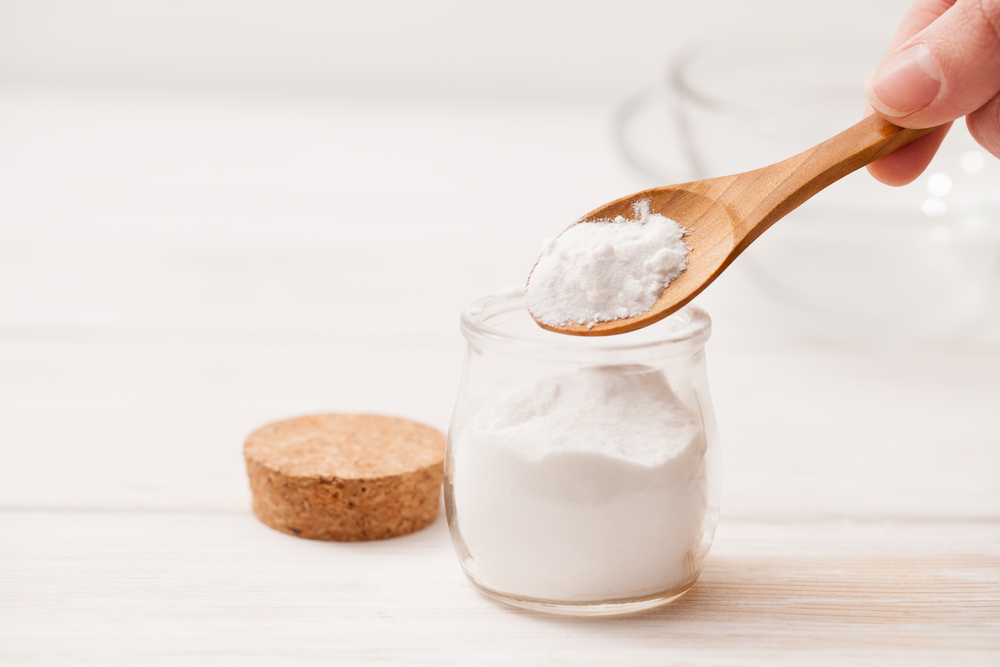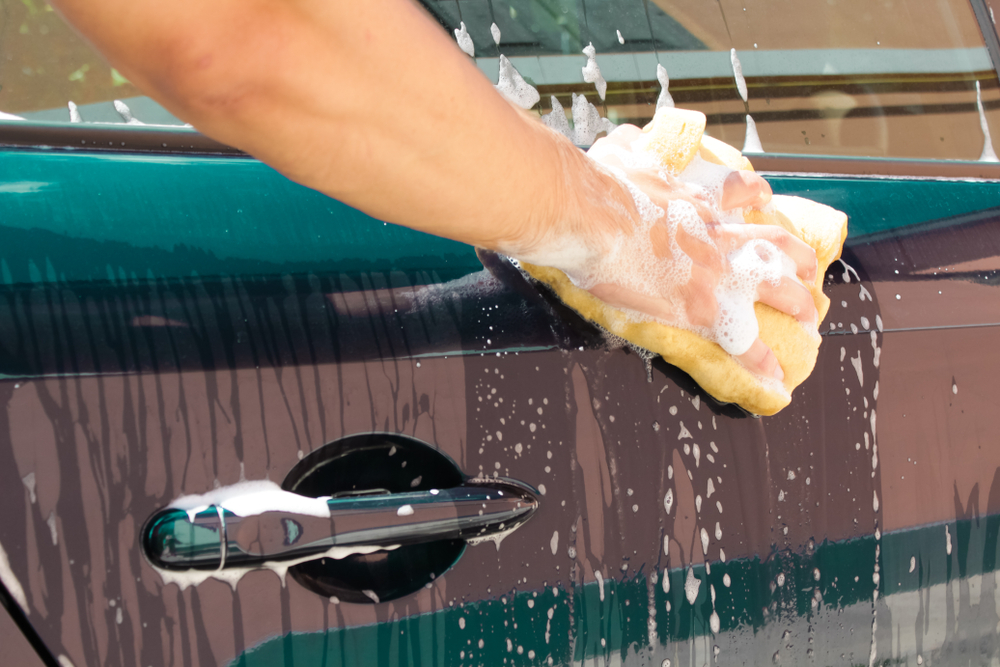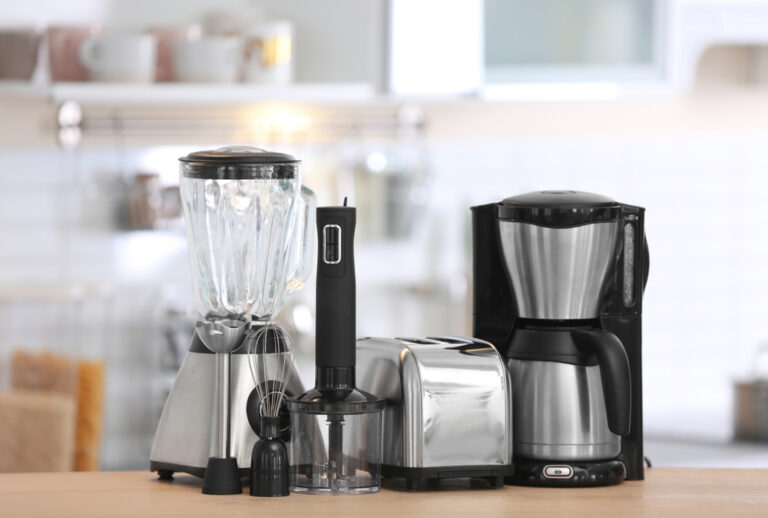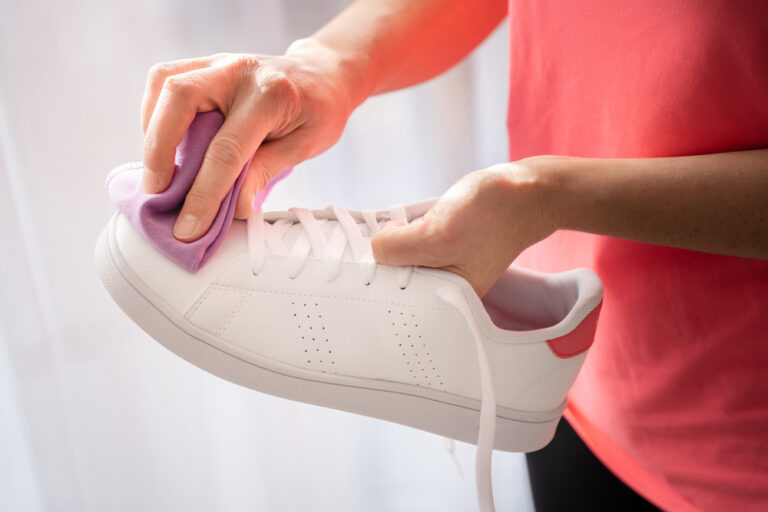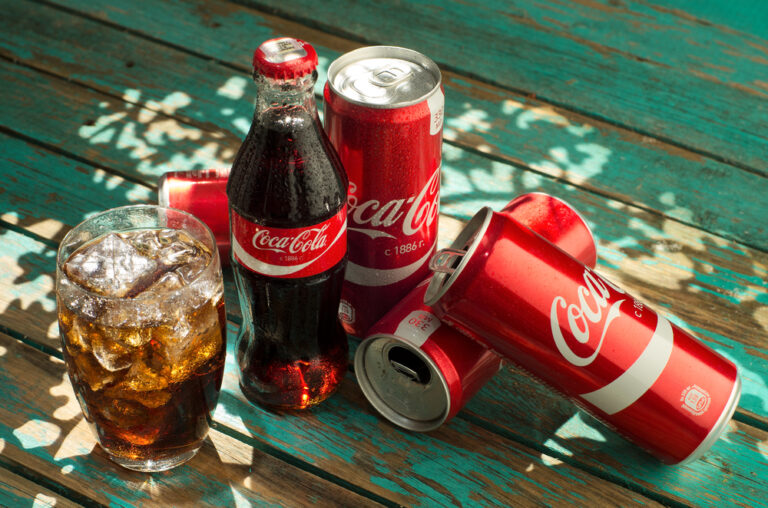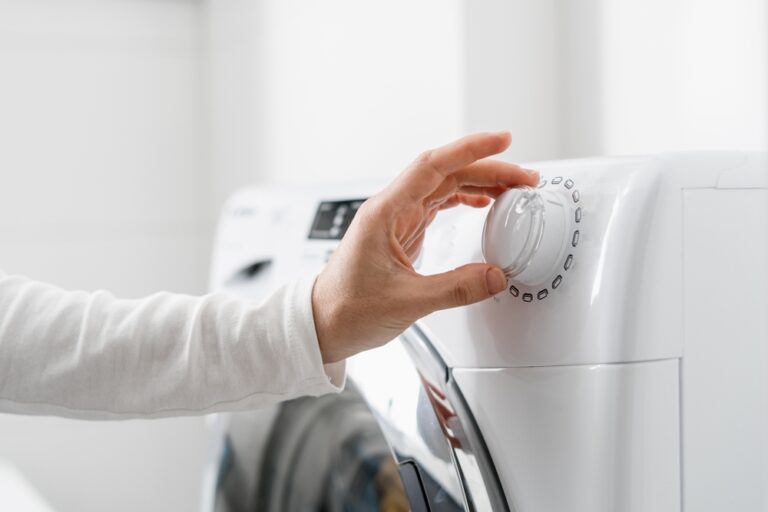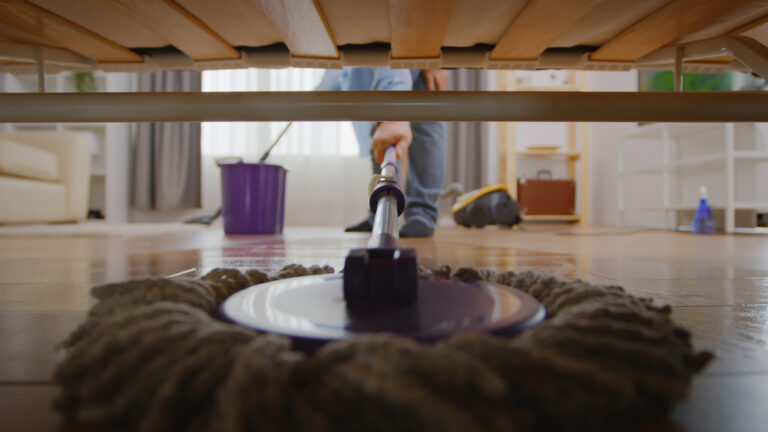Here are all the items you should never put in your garbage disposal!
A garbage disposal is an electronic gadget that is placed on the underside of your kitchen sink, and it uses small blades to grind food waste into pieces that are tiny enough to go through the plumbing system.
Having a garbage disposal is a fantastic way to keep your kitchen clean and eco-friendly, thanks to the fact that you can quickly get rid of any waste. However, just because you have such a fantastic aid in your home doesn’t mean that it can be used with everything.
Things like cooked foods, fruits, veggies, or ice can safely go down a garbage disposal, but other items in your kitchen might cause your system to clog or damage the blades.
You can repair your garbage disposal, but it won’t be cheap. But if you don’t plan on getting it fixed anytime soon, you should know what things are compatible with your gadgets, so you can make sure that you’ll have it up and running for many years to come. Keep reading to learn more!
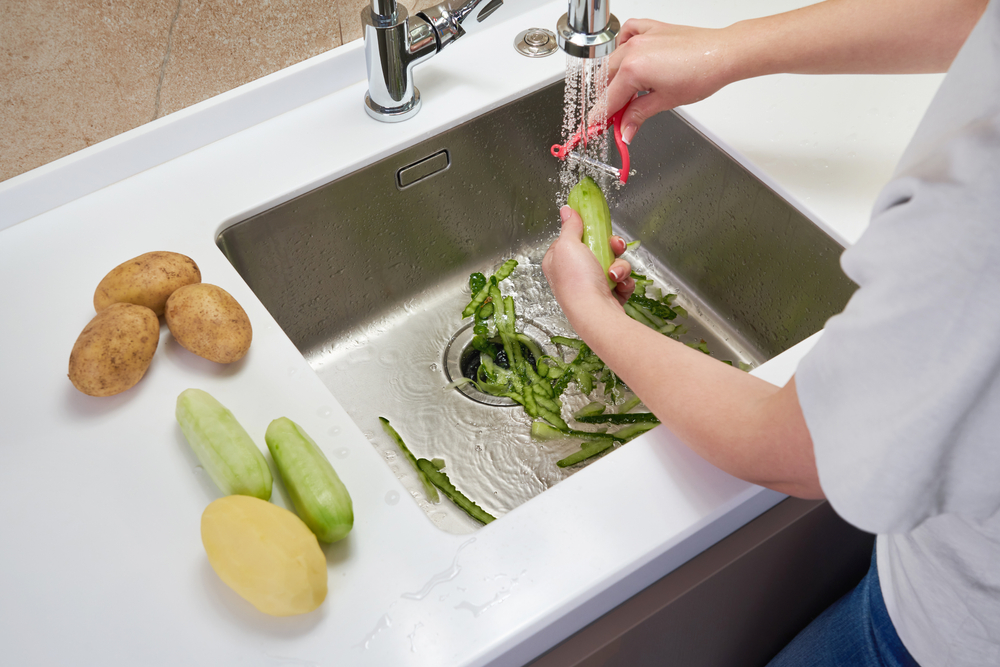
1. Potato peels
If you don’t want any plumbing blockages, don’t throw potato peels in your garbage disposal because they can create a gluey mess that is hard to deal with.
After your peels pass through the trash disposal and then into your pipes, they can get soaked and break down into a sticky liquid. If you only throw away small quantities, your plumbing system will be fine, but make sure you don’t insert large quantities in there, or too often, because you risk causing trouble.
2. Pits and seeds
Your trusted garbage disposal was created to handle soft food, not hardy things like mango seeds or peach pits. Put some large stones in there, and you’ll have the perfect recipe for a disaster, considering that these things are difficult to break down and might cause the motor to break or burn out.
Other pits and seeds, like peach and avocado, are quite large for your rubbish disposal, and they might form clogs that can be pretty hard to deal with. Don’t think that only large ones are to blame here, because even smaller seeds and pits, like grapes or cherries, can still cause severe issues.
The seeds and pits from those delicious fruits you’ve consumed should be placed in your regular garbage. And since we talk about fruits, it’s best to put the skins and fruit pulp in the garbage too, or use them for compost.
3. Eggs and onion skins
Here’s something interesting: particular experts say that eggshells are rather safe for your garbage disposal, as they can keep those strong blades sharp, but you should still be careful with them. The reason I tell you that is because the membrane beneath the eggshell can wrap around the blades, and they won’t function at their best.
The same thing goes for onion skins too, as they can slip past the blades intact and create a messy clog in your pipes. If you forgot about this and now you see some tiny fragments captured in there, turn off your disposal and grab some pliers or tongs to remove them. You can then loosen the clog by adding a pot of boiling water to the trash disposal.
If you tried this tip and it didn’t work, you might need a plumbing snake to remove that annoying clog or call your plumber to help you solve this issue.
Long story short, you can still use the onion skins and eggshells, so getting rid of them isn’t the smartest idea. They’re rich in nutrients, so you’d better add them to a compost heap.
If you need a good-working plumbing snake, here’s one that is affordable but also gets the job done like nobody’s business!
4. Nuts
You can make delicious nut butter at home by grinding nuts and water into a creamy or crunchy paste with the help of your food processor blades. The result is yummy, but the cleaning process after this isn’t that pleasant.
Now imagine how messy it would be if you were throwing nuts in your garbage disposal. The mess in your pipes will be enormous, so you can avoid that by throwing away your expired nuts in the trash bin.
Putting nuts in your garbage disposal can cause blockages and a damaged plumbing system, and if you don’t take care of these problems as soon as they arise, you might be delighted by an unpleasant odor and bacteria growth. Just like onion skins and eggshells, nuts can be wonderful for your compost pile too.
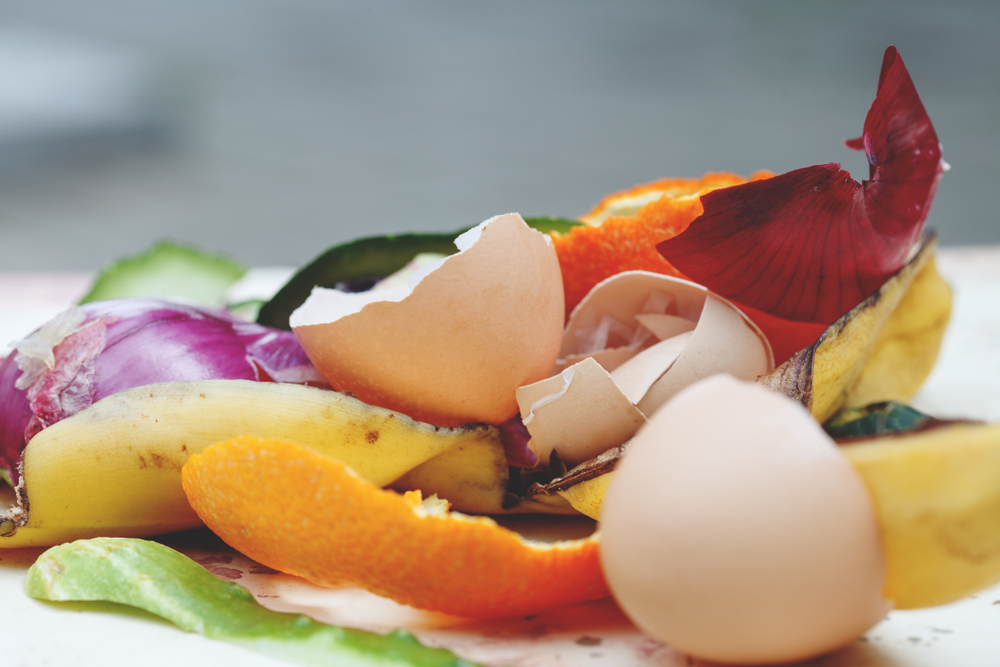
5. Bones and shells
Shellfish are other food waste you shouldn’t put in your garbage disposal because lobster, crabs, shrimp, and oysters come with a hard exoskeleton that can make it difficult for your blades to break down and it might damage your pipes too.
Things can be even worse if you add big bones, such as ribs because you might need to change the blades afterward. On the other hand, people aren’t sure about small bones; some of them say that you won’t break your gadget, and others say that your device might not be powerful enough to handle that situation. Better safe than sorry, in my opinion, so toss them in the trash.
6. Medicine
Everything you put in your garbage disposal gets into the water supply, so avoid polluting the water supply by NOT putting medicine in that device.
The best thing you could do with unused or expired medicine is to go to a local health center or pharmacy and ask them if they can take those back. If their answer is no, you can put them in the garbage and mix them with animal waste or coffee grounds to make them unusable.
7. Coffee grounds
Have you ever heard a myth saying that coffee grounds are amazing for your plumbing system and keep those bad odors at bay? If yes, stop believing it, because it’s no good. It’s the opposite: while coffee grounds are amazing for at-home body treatments, they’re one of the most terrible items you can put down the drain.
The reason why you should save them for compost or throw them out in the garbage bin is that they can form into a sludgy mess and clog your pipes.
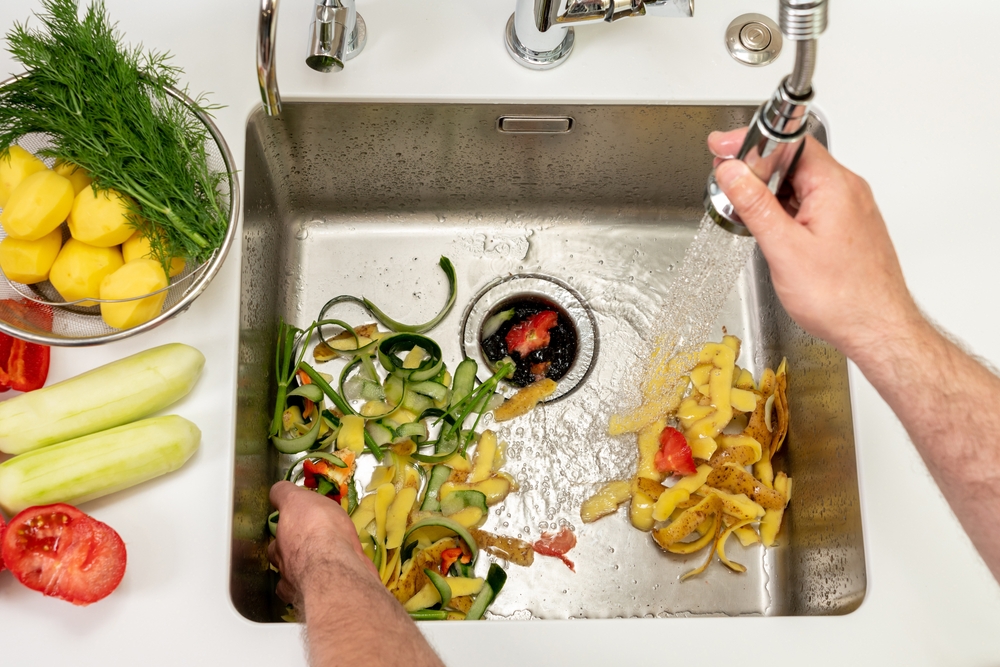
8. Fibrous veggies
As we’ve already said at the beginning of this article, disposing of particular veggies won’t hurt anybody, but there’s an exception to the rule, and that implies fibrous vegetables. Things like asparagus, celery, kale, rhubarb, chard, or pumpkin innards can get tangled up in those sharp blades and interfere with their regular jobs.
Don’t forget to always take the stickers off the peels of your veggies and fruits before putting them down in your strong garbage disposal, because they can stick to the pipes and blades and create some blockages.
Don’t forget that veggie peels, fruits, and vegetables that are no longer safe to eat can be amazing for compost heaps. Other than that, putting them in the regular garbage bin is the safest and most ecological thing to do.
9. Fats and grease
Grease and fats are other things that shouldn’t even touch your garbage disposal! Butter, oils, bacon grease, and poultry skin can solidify and stick in your pipes, which can then lead to major plumbing issues that can be both time-consuming and expensive to take care of.
Place them in cans or jars and then add them to the garbage, or look for a local facility that accepts fats like cooking oil for recycling.
10. Starchy foods
We’re almost done with this food waste you shouldn’t put in your garbage disposal, so don’t forget that starchy foods such as beans, pasta, oats, and rice are included in this list too. These can expand when they come in contact with water, and that can cause them to block your pipes and interfere with your sink drainage.
Another thing that can happen if you don’t follow this tip is that they could coat your disposal’s blades, which will make them less effective. And yes, you’ve guessed it, it’s going to be pretty expensive to repair.
Take care of your garbage disposal, because it’s a fantastic tool for your kitchen, and if you follow all these tips, you will use it for many years to come!
If you find this article helpful and want to read something else from Wipe and Organize, here’s another fantastic post for you: Warning! 7 Cleaning Products You Should Never Mix


